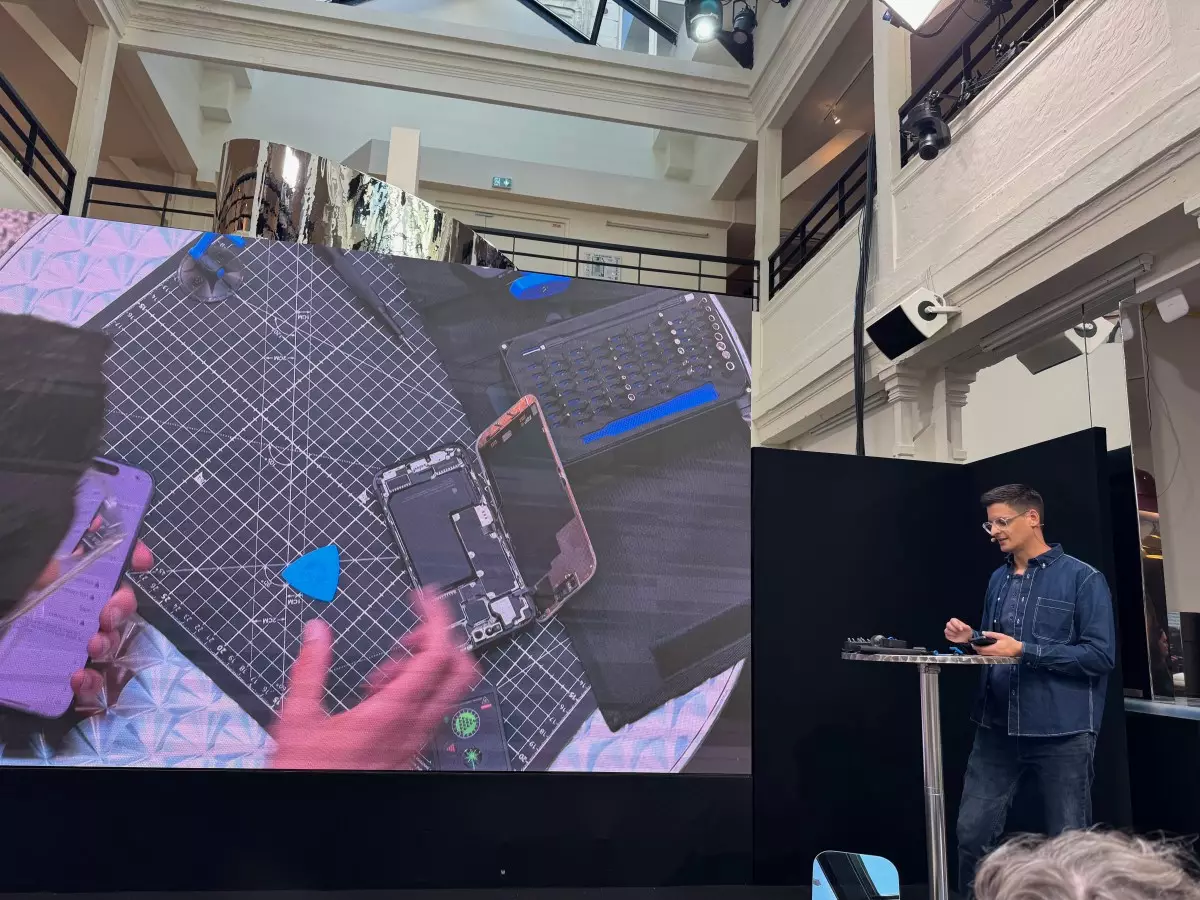In a pivotal press conference held in Paris, Back Market, a leading French startup, shared critical updates about its future product launches and its current standing in the refurbished electronics sector. This innovative marketplace specializes in the resale of refurbished devices, particularly smartphones. Although Back Market has experienced significant investment surges recently, it has not been without challenges. The tech industry’s economic climate has been shifting, and Back Market is poised to adapt and evolve.
Having raised a staggering $845 million in successive funding rounds—$335 million in a Series D and $510 million shortly thereafter for a Series E—Back Market reached a noteworthy valuation of $5.7 billion. However, as the global economic environment began to contract, marked by rising interest rates, the company found itself needing to reassess its operational strategies, which included a leaner workforce to enhance profitability. The groundwork for change was laid in late 2022, as the company expressed the necessity of these actions to secure a more financially stable future.
Fast forward to the recent press conference, and Back Market is embarking on a renewed focus on product innovation and expansion. With 10 years of marketplace dynamics under its belt, the company aims to broaden its appeal by targeting new distribution channels that cater to a premium market segment. The rationale behind this strategy is straightforward—refurbished products are not only more affordable than brand new ones but also more environmentally responsible.
Considering the diminishing functional differences between consecutive smartphone models, the question arises: why invest heavily in the latest device when the upgrade is negligible? Back Market’s model capitalizes on this sentiment, promoting the value of refurbished electronics as a smarter choice for consumers.
The company operates as a specialized marketplace rather than as a direct seller. Collaborating with approximately 1,800 partners who refurbish and sell their pre-owned gadgets enables Back Market to leverage its strengths in marketing refurbished electronics effectively. Since inception, the platform has successfully facilitated the resale of over 30 million devices to a customer base comprising 15 million individuals.
In a bid to expand its offerings and meet consumer demand, Back Market is establishing strategic partnerships that facilitate new avenues for inventory acquisition. An illustrative example is its collaboration with Sony for the PlayStation consoles. CEO Thibaud Hug de Larauze pointed out that this partnership enables seamless trades for customers looking to exchange their old consoles, thereby alleviating inventory constraints that have previously hindered Back Market’s offerings.
This initiative reflects a broader strategy where the company intends to integrate into various shopping platforms, making it easier than ever for consumers to trade in obsolete technology while promoting access to refurbished devices. Additionally, partnerships with telecom companies like Bouygues Telecom in France and Verizon’s Visible in the United States seek to incentivize the purchase of refurbished smartphones alongside long-term plans, turning exchanges into budget-friendly options for consumers.
One of the primary barriers to purchasing refurbished electronics has always been quality assurance. Back Market is proactively addressing this concern by monitoring and reducing the defect rates of its devices, currently standing at a relatively low 4%. Customers can choose from devices in different conditions—fair, good, or excellent—and with the introduction of a premium tier, the assurance surrounding the quality of refurbished phones is enhanced. Premium devices entail repairs made exclusively with official parts, providing an additional level of confidence for buyers.
Beyond product quality, the user experience is also set for an upgrade. The upcoming app update aims to turn the Back Market platform into a more interactive and informational experience. Users will have features like tips for maintaining their devices, gamification aspects with rewards, and an innovative tool to quickly assess the value of their existing smartphones.
Moreover, Back Market plans to utilize generative AI to facilitate better product comparisons, simplifying the decision-making process for prospective buyers. As competition in the refurbished market heats up, these advancements could enable Back Market to solidify its position further.
When contemplating future growth trajectories, Back Market envisions learning lessons from the car industry, where the normalization of pre-owned purchases is prevalent. As more consumers become accustomed to opting for refurbished electronics, the European Union’s proposed regulations mandating parts availability will further propel the shift towards a rental and resale economy.
According to Hug de Larauze, the company is likely to achieve profitability in Europe by the end of 2024, marking a significant milestone in Back Market’s evolution. Transitioning from an impact-driven label to a profitable business model underscores the potential for sustainable success in the refurbished market.
As Back Market progresses toward becoming the leading destination for refurbished electronics, especially in markets like the United States, its adaptability and commitment to quality and consumer engagement will be fundamental to achieving that goal. The future of refurbished devices is not only bright; it carries the promise of a more sustainable and economically sensible consumer culture.

